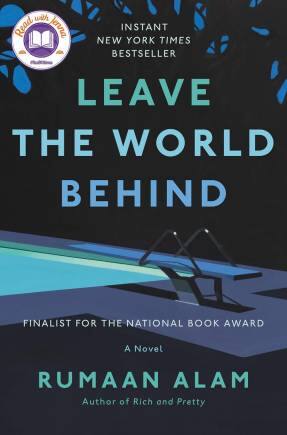



It can be a mug’s game to compare a screen adaptation with the book it’s based on. If it takes liberties, there’s a chorus of cries from those who loved the original. Too faithful, and it risks being dismissed as simplistic and without stylistic flair.
To state the obvious, a book and a movie are different mediums, and there’s a lot gained and lost in translation. Novels are suited to interiority, first-hand explorations of the thoughts, feelings, and motivations of characters. Movies, on the other hand, depend on visual and auditory cues for their effects, including dialogue, sound design, performances and editing.
The best adaptations, then, take the source material and walk the tightrope of transforming it into something cinematic, yet relevant to the original. Harold Pinter’s adaptation of John Fowles’s The French Lieutenant’s Woman is a case in point. Among other refinements, the screenplay merged the novel’s two endings into a cohesive narrative that intertwined the modern and the Victorian – which, in a sense, was the essence of the novel itself. (It really should have won the Academy Award for Best Adapted Screenplay in 1981; though nominated, it lost to Ernest Thompson's screenplay for On Golden Pond.)
In this context, the recent Netflix adaptation of Rumaan Alam’s Leave the World Behind, written and directed by Sam Esmail, is a disappointment — not because it doesn’t innovate, but because of the way it does. Alam’s 2020 novel was an end-of-the-world story with a difference: apocalyptic scenarios were suggested rather than spelt out, and the focus was on how characters dealt with feelings of dread as well as each other. The film version opts for an explicit and ostentatious approach.
The novel deals with how a vacationing family’s experience is disrupted by unexpected and mysterious occurrences. Shortly after a White couple and their teenage children settle down in a secluded Airbnb villa, they are interrupted by a knock on the door. Guess who’s coming to dinner: it’s an older Black couple, the owners of the house, seeking refuge from a blackout in New York City.
It soon becomes clear that the blackout presages something more ominous, and the couples have to grapple with isolation, lack of communication with the outside world, and inexplicable occurrences. They behave in ways that are relatable, though not necessarily likeable, tip-toeing around issues and trying to live up to social roles.
Apart from the way it portrays an apocalyptic atmosphere, the novel was rightly praised for its exploration of race and class in contemporary America. Alam skilfully links these issues to a fear of societal breakdown by exploring his characters’ anxieties and suspicions as they try to make sense of escalating events. He accentuates this by a few judicious flash-forwards that emphasise the fallout of the catastrophe.
 Leave the World Behind book cover.
Leave the World Behind book cover.
Sam Esmail’s version turns up the dial of this plotline, accompanied by a portentous musical score and frequent off-axis framing. Unfortunately, such underlining makes the adaptation strident and unsatisfying. Even on its own terms, without contrasting it with the book, the movie misses the mark.
To be fair, it was always going to be challenging to adapt the way the novel weaves in and out of characters’ minds in third person. To address this, the film overcompensates with explicatory dialogue, especially in the case of the character played by Julia Roberts. An immediately noticeable change is that the characters of a Black husband and wife are converted to a Black father and daughter. One can only assume that this was done to appeal to a Gen X sensibility.
 Myha’la Herrold, Mahershala Ali, Ethan Hawke and Julia Roberts in director Sam Esmail's Leave the World Behind, which dropped on Netflix on December 8, 2023. (Screen grab: YouTube/Netflix)
Myha’la Herrold, Mahershala Ali, Ethan Hawke and Julia Roberts in director Sam Esmail's Leave the World Behind, which dropped on Netflix on December 8, 2023. (Screen grab: YouTube/Netflix)
More disconcerting is the shift in tone. Where Alam relies on nuance and suggestion, Esmail depends on the dramatic, with faux-Hitchcockian scenes of a character running from a diving aeroplane, oil tankers grounded on beaches, Tesla pile-ups, and drones dropping threatening Arabic leaflets. The novel’s underlying sense of dread and an unforeseen future, which is present at the beginning of the film, is soon stripped away and replaced by overt statements about hackers’ exploits and conspiracy theories involving American adversaries.
By the end, it’s revealed that the point of the melodrama is that America needs to get its act together if it doesn’t want to sink into chaotic anarchy — a message that’s delivered with unnecessary peacockery. Halfway through, Julia Roberts’s character looks at the others and says: “Don’t you think you’re maybe getting a little carried away?” That applies to the entire production, too.
Discover the latest Business News, Sensex, and Nifty updates. Obtain Personal Finance insights, tax queries, and expert opinions on Moneycontrol or download the Moneycontrol App to stay updated!
Find the best of Al News in one place, specially curated for you every weekend.
Stay on top of the latest tech trends and biggest startup news.